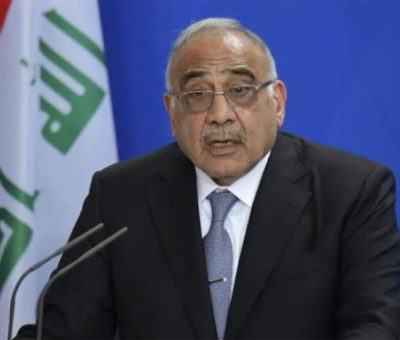Protests and the violent response of the government have shredded the myth of state-sponsored sectarianism as the organizing principle for political power. The persistence and magnitude of protests in Iraq since early October and the brutality of Iraqi government forces and militias seeking to crush them have shaken the country. More than 275 protesters have been killed and
Read MoreAbbas Kadhim is the Director of the Iraq Initiative at the Atlantic Council. “In his address to the Iraqi people on October 31, President Barham Salih referred to Prime Minister Adil Abdul-Mahdi’s offer to resign if the two major parliamentary blocs (Sairoon and Fatah) that made a deal to nominate him for the post can agree on a replacement. Abdul-Mahdi was respond
Read MoreOn Facebook and in the cafés of decimated Mosul, they envision a country free from political Islam. Do they have a shot? Iraqi students walk near a building of the central Library of the University of Mosul, in Mosul, Iraq May 14, 2018. KHALID AL-MOUSILY / REUTERS MOSUL, Iraq—Rayyan Hadidi was 18 years old when he lost his faith. It was July 2006, and he wa
Read MoreIraqis and outside observers alike are still making sense of the surprise results of last weekend’s elections, the country’s first since the violent rise and fall of the Islamic State. In the biggest shock, the populist Shia cleric Muqtada al-Sadr’s political coalition—a nationalist, non-sectarian alliance between his political movement, secular activists and the Iraqi
Read MoreThe victory of Saairun (Marching Forward) in Iraq’s 12 May elections took many by surprise. The alliance which united the Shi’i Islamist Sadrist movement, led by the cleric Muqtada al-Sadr, and the Iraqi Communist Party (ICP) won more seats (54) than any other electoral coalition. Much has been written since the shock election result reflecting on Muqtada’s supposed tr
Read More





